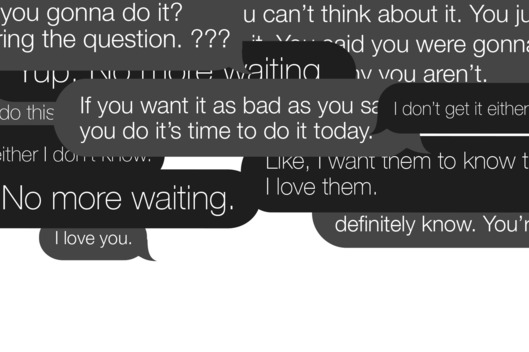If Words Could Kill
I’m just a plainspoken Colorado criminal defense lawyer, but the way I see it…
If words could kill, I’m pretty sure I’d already have solved the problem of what to do about the national disgrace the Russians helped elevate to the presidency of the United States.
Almost as soon as I wrote that sentence, maybe even a little bit before, I began to doubt myself. Not the part about the malignancy in the White House; I’d cut that out in a keystroke. But I’ve known many criminals whose lives were shaped by the words they heard while growing up, usually from their fathers or mothers. Their lives weren’t taken by words, but their sense of self-worth — and by extension the worth of others — surely was.
A juvenile court judge in Massachusetts was much more sure of himself when he convicted a young woman of involuntary manslaughter, a couple of years ago. Lawrence Moniz, who many criminal defense lawyers feel can’t reach mandatory retirement age soon enough, ruled that Michelle Carter, using words alone, caused the death of her virtual boyfriend, Conrad Roy.
He died breathing carbon monoxide in a truck after she encouraged him to complete the suicide he’d planned. The latest suicide he’d planned.
Their relationship was almost entirely through texts and phone calls. Both were teenagers. Lived fifty miles apart. Each professed love for the other.
From the beginning, Conrad had been suicidal, had made other attempts. Michelle initially encouraged him to get therapy for his depression. He was resistant and repeatedly expressed a commitment to suicide. By text, they collaborated on how to do it. She suggested drinking bleach, hanging, jumping off a building. “There’s a lot of ways,” she texted.
He’d ask her to help him do it, repeatedly committed to do it, repeatedly pulled back.
The homicide itself was entirely by text. The words showed she helped him steel his resolve. “If you want it as bad as you say you do, it’s time to do it today,” she wrote. It was another day before he climbed into the truck. One last time he climbed out, and one last time she urged him to finish what he swore he wanted to do, what he asked her to help him to do.
Her lawyers appealed her conviction and fifteen-month sentence, which she began serving in February after Massachusetts’ highest court rejected her claim that words alone could not make her legally responsible for her friend’s death.
The lawyers this month asked the federal Supreme Court to review the case as a violation of free speech protections.
Can words alone kill, they want the court to decide.
In this particular case, I don’t think they can. But I can’t say that I know.
What do you think?

4 August 2019 @ 5:35 pm
Although I don’t practice in Mass nor profess to know their invol. manslaughter statute, I’d say the conviction ought to be reversed. It seems to me that the crime, if there is to be one, is that of assisted suicide by encouragement. Assuming that there isn’t such a statute, I’d say the key element would be: intentionally encouraging an individual to harm, regardless of knowledge of whether they previously expressed a desire to do so, oneself under circumstances that a reasonable person would assume was intended to be serious (saying go ahead and kill yourself, what do I care, or take a long walk off a short pier would not be sufficient). The degree of penalty would then be tied to whether the individual actually harmed themself. Mitigation or aggravation of penalty might be appropriate if the person who encourages harm or the victim is a minor, whether there was a fiduciary relationship between actors, the ages of the parties, any prior knowledge of the susceptibility of the victim, whether injury is non-existent, slight, great or death.
However, on the other hand, this situation seems to come close to criminalizing schoolyard bullies or those who are simply internet trolls. Not sure I’d like to live in a nanny state.
Perhaps you can post the opinion of the Mass. Sup. Ct.?
4 August 2019 @ 10:19 pm
I’ll try here to link the two opinions of the Supreme Judicial Court of Massachusetts. Carter 1, decided 1 July 2016, found that words alone were sufficient to support an indictment of involuntary manslaughter. Carter 2, decided 6 February this year, was the appeal of her conviction, which affirmed the trial judge’s decision and held her First Amendment claim to be without merit.
31 July 2019 @ 4:54 pm
Re:
“If Words Could Kill”
It doesn’t seem to me that this constitutes manslaughter as the girl did not physically harm the boy. On the other hand, I guess it could constitute manslaughter or some other crime involving murder if Massachusetts has a statute criminalizing assisting suicide. Finally, I suppose it might be considered a conspiracy if such crime exists with respect to manslaughter (doubtful I think).